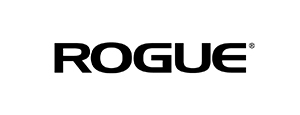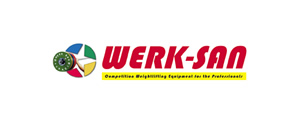International Anti-Doping Seminar held in Moscow
The International Anti-Doping Seminar, organized by the Russian Weightlifting Federation with the International Weightlifting Federation, drew to a close in Moscow on Saturday. The 2 days event was supported by Russian Sports Ministry, Russian Olympic Committee, WADA, RUSADA and CCES.
The seminar aimed to help attending National Federations and representatives from Russian Weightlifting Federation align themselves with international best practice in anti-doping and related education, with the goal of ensuring clean sport.
The seminar was attended by 11 National Federations, including the nine that have been suspended by the IWF for doping violations related to the retesting of samples from the 2008 and 2012 Olympic Games. Representatives from 68 Regions and National coaches of the Russian Weightlifting Federation also participated.
During the seminar the attendees were provided with industry-leading knowledge, which will help them address the culture of doping in their countries and deliver more effective anti-doping programmes.
During the seminar, presentations were made by the IWF, WADA, and the CCES as well as by the hosts: the Russian Weightlifting Federation and the Russian Anti-Doping Agency (RUSADA). Topics covered included: biomedical support for athletes, electronic diary management for athletes and coaches, education and training of sports personnel, and measures to prevent possible doping violations.
IWF Director General Attila Adamfi said:
“We are very proud that for this innovative education seminar, we could bring together all the important stakeholders, including WADA, Russian Olympic Committee and Sports Ministry, and relevant NADOs, the RUSADA and CCES. We believe this is key since no one can succeed alone.
We thank our host, the Russian Weightlifting Federation for organising the event on a high level providing excellent conditions. Such education is an investment into our future.”
“All our national federations have a responsibility to ensure clean sport. As the global governing body, we are also committed to working with them to ensure they are fully equipped with the necessary knowledge and the tools to implement effective anti-doping programmes in their countries. Education is critical to combating doping which is why this seminar, and others like it, are so important. “
“We have made it clear that while we have, and will continue to implement robust anti-doping measures, our priority is to protect clean lifters. We will continue to support all our national federations, including those who are suspended.”
The anti-doping seminar is the latest in a long list of actions the IWF has undertaken to ensure clean sport and protect clean athletes. Following submission of the Clean Sport Commission’s report in December 2017, the IWF has already implemented a waste majority of recommendations, including the adoption of a new Anti-Doping Policy which came into effect last month.
Maxim Agapitov, RFWF President said:
“Russia is committed to being a reliable partner of the IWF. Today the RWF demonstrated this as we continue to look for ways to combat the problem of doping. We have created the most advanced educational system for our athletes and coaches, and analyzed and identified the main causes of doping in our sport. We revealed a lot of facts that require investigation and we will hold them. It was the first seminar which aroused sincere interest of the audience, that I can remember. We hope the Russian Weightlifting Federation has made a breakthrough and our seminar can be an example for such kind of events.”
A WADA spokesperson noted:
“The fight against doping in sport is complex. It requires a multi-pronged and balanced approach. As we have seen recently, to be successful in protecting clean sport we should focus our attention on prevention which includes education, detection, deterrence and enforcement. In the long-run, prevention will prove to be even a more efficient tool to fight doping.
“WADA’s objective is to promote, advocate and lead education initiatives to ensure a stakeholder culture that understands the value of doping-free sport. With the view to increasing and enhancing research-led anti-doping education, in 2017, WADA initiated development of a new International Standard for Education and Information. Research has confirmed that more needs to be done to highlight the importance of education and to guide stakeholders on what developing an efficient and effective education program involves.
“It is encouraging to see how the International Weightlifting Federation is engaging with WADA and other stakeholders to focus on anti-doping education for the good of clean sport.”
Paul Melia, CCES President and CEO added:
“The Canadian Centre for Ethics in Sport is pleased to have provided anti-doping expertise at the IWF Education Seminar. Education is a key component of any successful anti-doping programme and we hope that our involvement with IWF anti-doping education initiatives will help to initiate a much-needed culture change that will deter doping in the sport of weightlifting.”














